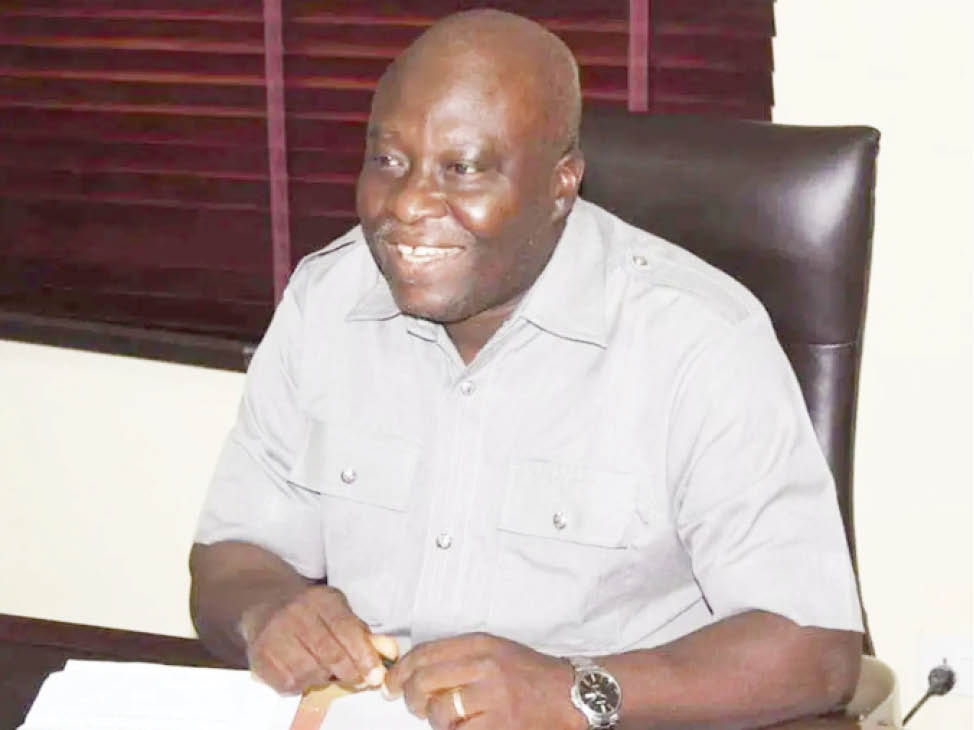Broadcasting code stirs controversy at NBC
The controversy over the amendment of the sixth edition of Nigeria’s broadcasting code raged at the weekend as the Board of the National Broadcasting Commission (NBC) insisted it must be reviewed. The Board had on Friday, June 26, placed advertisements in some national newspapers, calling on aggrieved stakeholders in the broadcasting and entertainment industries to […]

Armstrong Idachaba, acting NBC Chairman
The controversy over the amendment of the sixth edition of Nigeria’s broadcasting code raged at the weekend as the Board of the National Broadcasting Commission (NBC) insisted it must be reviewed.
The Board had on Friday, June 26, placed advertisements in some national newspapers, calling on aggrieved stakeholders in the broadcasting and entertainment industries to submit position papers on the amended code.
But the NBC, in another advert signed by the acting director-general on Monday, June 29, asked Nigerians to disregard the earlier one by the Board.
However, speaking with Daily Trust on Sunday in Abuja, chairman of the NBC Board, Malam Ikra Aliyu Bilbis, said it was wrong for the commission’s top management staff to say their advert did not have official endorsement.
Bilbis, who alleged that some ministry officials were setting the NBC’s top management staff against the commission’s Board, said protocols were being breached by the officials in their oversight of the broadcast regulatory agency.
“It is a breach of protocol to write to give information to the chairman of the NBC Board through the director overseeing the office of the director-general of the same commission, which we superintend over,” the chairman said.
He said the line of communication as given by the Secretary to the Government of the Federation (SGF) “is from the ministry to the Board through the permanent secretary directly and through the office of the chief executive officer.’’
He said as much as the Board agreed that section 6 of the NBC Act conferred on the minister the power to give directives of general character to the commission, it, “however does not infer that the honourable minister can substitute the Board by usurping its functions.”
He said there had never been a time in the history, tradition and conventions of the NBC when a presidential approval was needed for a review of the broadcasting code.
Similarly, he said there had never been a time when a minister or the ministry would intervene in the code review.
He wondered why the top management of the NBC would choose not to listen to stakeholders who were shut out during the amendment.
He called on the stakeholders to keep submitting their position papers on the amended code.
The chairman of the Copyright Society of Nigeria (COSON), Mr. Tony Okoroji, described as unenforceable, some of the provisions in the broadcast code.
Okoroji, who made his view known on his Twitter handle, @Tonyokoroj, said some of the provisions of the new code were good, but are unworkable, while others are unconstitutional.
He stated that the NBC was attempting to overreach itself by assuming the powers of the National Assembly, and called for a revisit of those amendments.
“I understand the good intents of the new NBC broadcast code, but some of the provisions are unworkable, some even unconstitutional. The commission cannot overreach itself and assume the powers of the National Assembly. The code needs to be revisited,” he twitted.
Also, the chief executive officer of Iroko Television, Jason Njoku, stated that amendments in the code that seek to limit exclusivity and abridge the rights of copyright owners have the potential to discourage investment in the sector.
Many other players in the broadcast industry have expressed disapproval of the code, which is viewed an assault on their copyright.
But speaking with Daily Trust on Sunday, the acting director-general of the NBC, Mr Amstrong Idachaba, said the commission “carried all stakeholders along during the amendment.’’
Idachaba alleged that a stakeholder, a foreign company, is behind the campaign against the amended sixth broadcasting code.
The NBC boss said the company was kicking against the code because it erroneously believed that it would weaken its monopoly and bring Nigerian companies to the same level with it.
“This is not so. Rather it would even give them more reach and more money. This is because by reaching more Nigerians through sharing of contents with local stations, more advertisers will advertise, and you even get additional money from the contents you shared with local stations,’ he said.
He added that the code was amended to also protect local broadcasting stations from collapsing.
